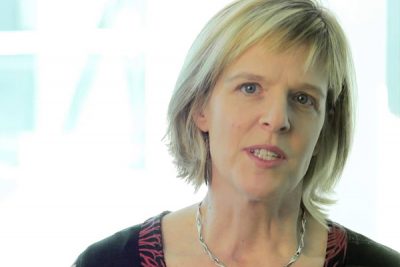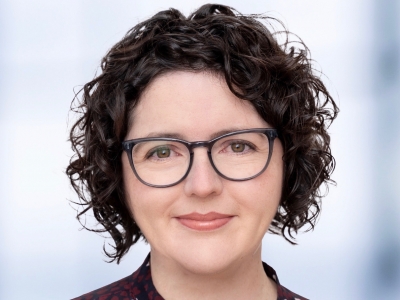
Social Work Professor Sarah Todd
It started, as do so many great partnerships, with a conversation.
Sarah Todd, Associate Professor in the School of Social Work, was attending a meeting of the Youth Research and Evaluation eXchange, or YouthREX, which she serves as academic director of its eastern hub. YouthREX, a provincially funded initiative of five universities within Ontario, including Carleton, supports grassroots organizations that work with youth by helping them integrate research evidence into the development and delivery of programs.
Todd was approached by Les Voakes, retired CEO of Youth Centres Canada−Centre des jeunes Canada (YCC-CJC) and a passionate advocate for youth programs and services. Youth centres across the country, he explained, had a serious challenge, and he thought that Todd might be able to facilitate a solution.
Youth centres, depending on the needs, resources and funding in their community, can offer a range of social services and programs, from drop-in centres to clothing banks to housing assistance and substance abuse counselling. But despite being valuable resources for youth, families and their communities, these centres are perennially strapped for money.
According to Voakes, funders require data on program uptake and effectiveness, but the severe lack of resources mean that data collection − let alone data analysis − poses a crucial challenge for staff, putting continued funding at risk.
The solution is a three-year collaboration that was recently awarded a $143,000 Partnership Development Grant from the Social Sciences and Humanities Research Council (SSHRC). Staff and young people from six youth centres – three near Ottawa and three near Edmonton, representing rural, suburban and urban communities – will pilot-test and provide essential feedback on a customized, tablet-based app that tracks program attendance and elicits preliminary data on effectiveness. By year 3, the technology will be rolled out to over 450 youth centres across Canada that are affiliated with YCC-CJC; eventually, Todd hopes, other under-resourced social service providers will be able to use adapted versions.
The project rests on an innovative partnership among Carleton, the University of Alberta, YCC-CJC, and tech company Distill Mobile, which designs apps for smartphones and tablets. Everyone stands to benefit.
Distill Mobile will innovate new technology that they can use in future projects, and they will also have access to a little-known user group. It seems that teenagers are as inscrutable to tech companies as they are to their parents. “In the tech world, teens are the users that no one knows very much about, other than that they use technology differently than adults,” says CEO and founder Tom Murphy. “Being able to sit down with them is the opportunity and the challenge that this project provides.”
The tech company will also enjoy the intangible reward of doing good: “Contributing to a community partnership was an important draw for us,” acknowledges Murphy.
In turn, researchers will have access to national data that helps them understand the big-picture role of youth centres as well as to a data set that delineates differences in how centres are used in urban, suburban and rural areas. YCC-CJC will use the information to enhance its collective voice and focus its training programs.
And for youth centres? “It’s a game-changer,” says Lisa Barleben, YCC-CJC board vice-chair. “The potential impacts for this sector are huge.” Centres will have what they have long needed: program data that can help secure funding and increase innovation, and a data collection system that frees up valuable staff time.
Todd, who is directing the project, relishes its shared benefits: “It has the potential to positively impact practice and scholarship simultaneously, which I think is rare.”
It’s an outcome that stems from the start of the collaboration. “Having a grassroots organization make the initial approach is a great way for a research project to begin,” says Todd. “More and more often, people in the community are coming to the university to see if we can work together to solve real-world problems. It’s a wonderfully helpful role for the university to play in society.”
Friday, September 9, 2016 in Celebrating Excellence, Justice, News, Policy, Professional, School of Social Work
Share: Twitter, Facebook



